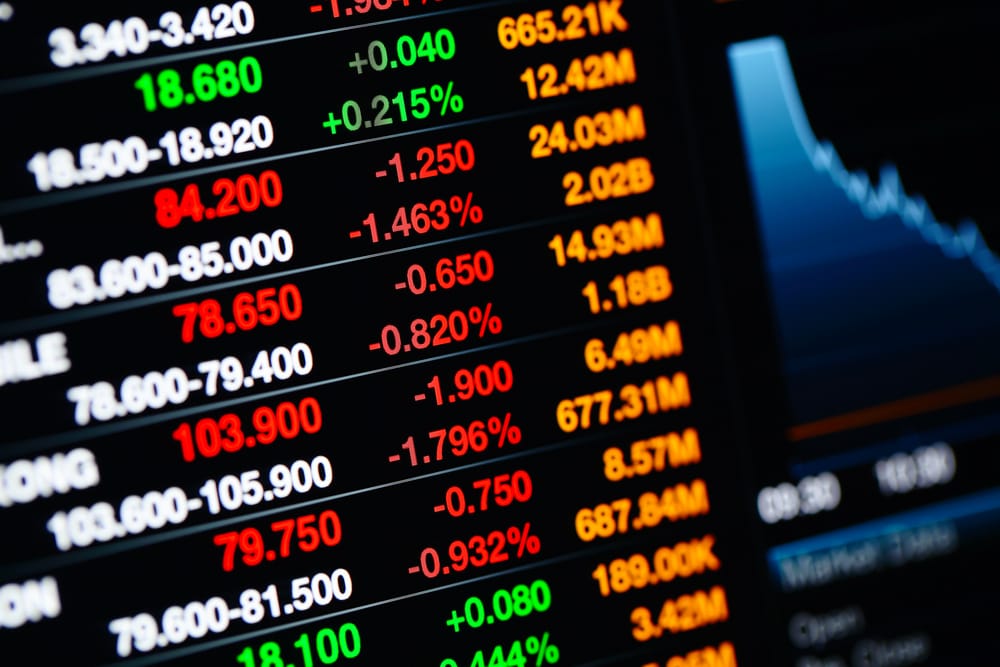Robinhood excluded from S&P 500 again, Trade Desk to join soon

Introduction
Once again, Robinhood faces exclusion from the prestigious S&P 500, leaving many investors wondering about the broader implications for the stock market and their portfolios. With Robinhood consistently in the limelight as a pioneer in online brokerage, its absence from the S&P 500 raises questions about index inclusion criteria and market dynamics. This development not only impacts Robinhood stock but also shapes investment strategies in the US economy, affecting everything from company valuation to trade volume and financial market trends.
Robinhood's Repeated S&P 500 Exclusion
Despite being a major player in the financial markets, Robinhood's valuation hasn’t met the S&P 500 standards, keeping it out of this crucial market index. This is surprising to many as Robinhood has transformed how individual investors interact with stock markets. However, financial analysis reveals some roadblocks:
- Valuation Concerns: The company’s valuation struggles to align with the criteria required for S&P 500 inclusion. This issue seems to dampen investor sentiment, as seen in its fluctuating stock performance.
- Market Reaction: Robinhood’s exclusion triggers notable market reactions. Traders often respond to such news with caution, which affects trade volumes and impacts market trends.
- Perception Issues: Remaining outside the index might be viewed unfavorably by investors who associate S&P 500 inclusion with robustness and reliability.
The Trade Desk's Promising Entry into the S&P 500
Trade Desk, with its unique business model, is gearing up for a coveted spot within the S&P 500. This move contrasts with Robinhood's latest setback and has sparked considerable interest:
- Increased Market Anticipation: Trade Desk’s potential inclusion has prompted increased trading activity. Investors are keen to capitalize on the possibilities offered by this company’s growth potential.
- Business Model: As a leader in advertising technology, Trade Desk’s innovative approach has been a major draw. The excitement around its business model underpins market anticipation.
- Strategic Market Focus: The prospect of inclusion has analysts and financial news outlets closely following Trade Desk, indicating strategies in index management are in active play.

S&P 500 Index: Criteria and Rebalancing
Index inclusion requires meeting specific criteria related to market capitalization and liquidity, central to how the S&P 500 is managed. These aspects play an essential role in deciding which companies make the cut:
- Market Capitalization and Liquidity: These two elements are crucial for being part of the S&P 500. Firms must have a certain size and be easy to trade to qualify.
- Routine Rebalancing: The S&P 500 is periodically adjusted to reflect changing company values and ensure that it mirrors the US economy accurately. This impacts index management and influences stock market trends.
- Illustrative Trends: Recent additions to the index, alongside Robinhood’s repeated exclusion, offer insights into current market dynamics and ongoing business news.

Implications for the US Economy and Financial Markets
Robinhood’s exclusion prompts investors to rethink their investment strategies and portfolio management approaches, adapting to market trends. This event highlights several important points:
- Reevaluation of Strategies: Investors might revisit their investment strategies, considering if reliance on new-age companies like Robinhood changes portfolio stability.
- Market Evolution: This situation mirrors broader trends within the US stock exchange. It throws a spotlight on how dynamic markets are and how firms are evaluated over time for innovation versus profitability.
- Future Outlook: Looking ahead, observers may wonder if and when Robinhood, amid financial analyses, will address these valuation issues to re-enter the mainstream index.
Conclusion
Robinhood’s ongoing exclusion from the S&P 500 truly resonates with broader financial narratives. It forces investors to reassess their choices and keeps the conversation about index criteria, market trends, and valuation at the forefront of economic discussions. Robinhood’s scenario, contrasted with Trade Desk’s rising fortunes, offers ample food for thought on how technology-driven companies navigate the intricate world of financial markets.




